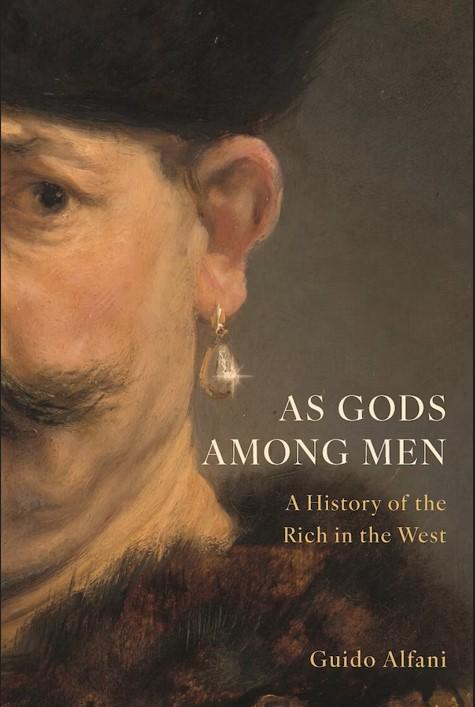
Rich People, Gods Among Men
GUIDO ALFANI'S LATEST BOOK ON THE HISTORY OF WEALTH IS NOW AVAILABLE IN EUROPE Wealth is, rather obviously, a sign of inequality. Guido Alfani, of Bocconi's Department of Social and Political Sciences, has described the evolution of social inequalities and of the attitudes of common people towards the rich over the last 1,000 years. Alfani's book, "As Gods Among Men", published by Princeton University Press, won significant acclaim on international media and is now available in Europe after its release in the US at the end of 2023. Here is the book's foreword, by courtesy of the author and of the publisher.
Wealth is, rather obviously, a sign of inequality. Guido Alfani, of Bocconi's Department of Social and Political Sciences, has described the evolution of social inequalities and of the attitudes of common people towards the rich over the last 1,000 years. Alfani's book, "As Gods Among Men", published by Princeton University Press, won significant acclaim on international media and is now available in Europe after its release in the US at the end of 2023. Here is the book's foreword, by courtesy of the author and of the publisher.Today, Western societies seem obsessed with the rich: who they are, how they became wealthy, how they behave or misbehave. Admired and flattered, and at the same time blamed and scorned, the rich and especially the super-rich are an ever-growing object of discussion among civil society. Some of them choose to become celebrities, a task made easier than ever by new communication technologies and the spread of social media. So much seems to have changed from the Middle Ages, when the rich were required not to appear to be wealthy (or at least not to show the full extent of their wealth), as the excessive accumulation of material resources was considered intrinsically sinful and even damaging to the correct functioning of a perfect (Christian) society and of its institutions, especially the political ones. As argued by some medieval commentators, if given apparently ‘equal’ access to political institutions, the super-rich would have de facto acted ‘as gods among men’, which was obviously not desirable.
And yet, how much has changed really? The very fact that the rich are the object of so much discussion, today as in the past, suggests that they struggle to find, or to be attributed, a proper place in society, again, today as in the past. These connections between past and present, hidden but at the same time clearly visible as soon as we look for them, are the main object of this book. This is not a simple account of the lives and deeds of the rich or super-rich, nor yet a book moved by personal fascination or distaste for them, but an attempt at a general history of the wealthy across the ages. Many examples will be given, and there is something to say for including brief narratives of the lives of certain extraordinary individuals (such narratives, beyond being scientifically illustrative and useful, are often quite entertaining), but these examples will be embedded in a general and systematic discussion.
Much has changed over time, and today’s rich certainly did not come into their wealth in exactly the same way as the rich of the Middle Ages (Elon Musk is not Alan the Red), let alone those of the Classical Age, but the questions that we might wish to answer about them, for both past and present societies, are largely the same. From the point of view of social science, including that of an economic and social historian such as myself, these common questions are what makes it meaningful to attempt a sweeping analysis which systematically covers the period from the Middle Ages until today, with the addition of frequent incursions into the Classical Age. And this approach is necessary if one wants to address the deeper and crucial questions. What continuities exist across time? What makes the rich today similar to those of the past? How do these similarities help us to better understand the social unease at their very presence, an unease which appears to be a characterizing trait of Western societies of all times? To answer, we must take a historical approach. First, because if we do not pay attention to the historical context we risk comparing pears with apples, so to speak. Second, because if we do not look at the past, and specifically at the long run, we will never become aware of some of the more relevant and interesting issues to be explored.
This is not a book ‘against’ the rich but one ‘about’ them. There is no a priori intention to levy charges against their current behaviour, or to tap into societal discontent in order to attract attention. At the origin of the book there is, instead, a genuine scientific interest in who the rich were in the past, born almost by chance from a more general scholarly interest in long-run trends in economic inequality. The sudden realization that the rich as a specific category have rarely been the object of proper scientific study, especially for preindustrial times, slowly grew into an ambitious project.
by Guido Alfani
